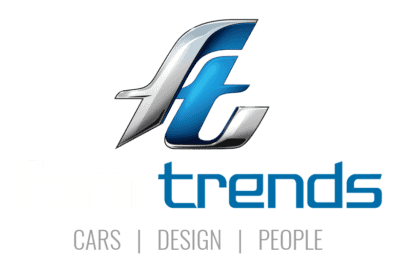London-based design consultancy PriestmanGoode was recently selected to develop the visual design for an electric autonomous high-capacity urban transport vehicle being developed by autonomous network transit (ANT) company Dromos Technologies. The competition brief from Dromos was to design a safe, reliable and affordable vehicle around principles of innovation, modularity, sustainability, convenience, maintainability, and versatility.
“We designed the vehicle around the user,” says Dan Window, Creative Director at PriestmanGoode. “We thought about what types of passengers would use the vehicle, what they would carry, what they would do, what accessibility requirements they might have… it’s been designed from the inside out. Every element has been considered to ensure that Dromos is flexible and suitable for a wide range of users.”

PriestmanGoode describes the design as ‘approachable minimalism’. There are no extraneous elements, every detail serves a specific purpose. The design was created to be easy and efficient to manufacture, as well as maintain, and to enable maximum passenger comfort.
The Dromos ANT is a multi-purpose vehicle platform designed for passengers and freight. Its modular design optimized for easy manufacturing and maintenance and its flexible interior can accommodate various passenger needs, including luggage, bikes, sporting equipment as well as disabled access.

Passengers access the cabin via extra-wide doors – which allow easy access for wheelchairs, bikes, and baby strollers – and a flat floor. The seating has been molded from sustainable and easy to clean materials. And with a large skylight and window space, the compact cabin is light and airy while the tinted and patterned glass with reflective coating reduces solar heat absorption.
The colors, materials, and finishes are being developed taking into account the latest material technology and increased passenger considerations around hygiene. The seating has been molded from sustainable and easy to clean materials. And with a large skylight and window space, the compact cabin is light and airy while the tinted and patterned glass with reflective coating reduces solar heat absorption.

“The last few months have changed priorities in terms of materials and finishes,” explains Maria Kafel-Bentkowska, Head of CMF at PriestmanGoode. “Hygiene has really come to the fore, and we’ve been working with suppliers to work on finding ways we can satisfy stricter hygiene standards as well as keep sustainability at the forefront.”
Dromos provides a high-capacity network of autonomous electric vehicles suitable for both passenger and urban freight, running on-demand and on its own dedicated infrastructure. The closed-loop system provides a number of environmental and economic benefits for passengers.

The vehicles are available anytime, can stop within 100m of any location, and direct into buildings. The autonomous electric vehicles are CO2 neutral at the point of use, ultra-quiet, and offer lower construction and operating cost and space consumption than conventional mass transport systems such as metro, rail, LRT and BRT.
“This type of mass transit has become even more relevant now,” says Paul Priestman, Designer and Chairman of PriestmanGoode. “Not only does it answer the first and last mile problem, which is one of the key issues we’re always trying to solve in public transport, but it’s also particularly suitable for a post-pandemic world where passengers are more concerned about hygiene and safety.”

“It enables us to maintain high volumes of passengers, whilst enabling social distancing, as passengers would share vehicles only with their own travel party,” added Priestman.
PriestmanGoode and Dromos Technologies are currently working on finalizing the design for production.



